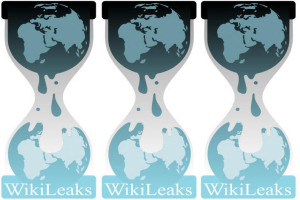WikiLeaks has damaged American power, finds researcher
26 Jan 2011
One of the first academics to study the impact of the exposure of US diplomatic cables by WikiLeaks argues that American power has been significantly damaged.

Professor Inderjeet Parmar, from The University of Manchester, says the prevailing argument that WikiLeaks has caused little lasting harm to the US is inaccurate.
“Information brought to the world’s attention by WikiLeaks has wreaked havoc on the United States in many different ways,” he said.
“The cables continue to damage America’s standing and influence on the world and its relationship with allies including Britain, Saudi Arabia, Pakistan, Yemen, Nigeria and others.”
The damage, he said, will be acutely felt when the US State Department host UNESCO’s world press freedom day May 2011.
He added: “The success of WikiLeaks in leveraging major news outlets such as the Guardian and New York Times is a major disruption to the Government’s agenda.
“For politicians, media and opinion-management go hand in hand: policies must be sold to publics to be politically salient.
“These cables have severely impeded that ability; they have challenged the agenda-setters who are normally used to following their chosen policies and controlling how they are portrayed to a mass audience.”
On Iran
“We now know there are differences between the US and Israel over Iran’s perceived nuclear threat. The Iranians now know that Israel is concerned about this and political consequences are sure to follow. The Iranians also now know that Israel is extremely wary of military strikes on Iran’s nuclear plants.”
On Tunisia
“It’s clear that WikiLeaks cables added to Tunisian public’s sense that President Zainul Abedin Ben Ali was corrupt and out of touch with the people. The uprisings there were at least in part influenced by secret US embassy cables and could release a wave of change throughout the Arab world, most of them staunch US allies, including providing a more powerful impetus to extreme Islamist parties.”
On China
“The Chinese now know how much the US accepts that its economy - and employment - depends on them. Hu Jintao’s current visit to the US will no doubt feature deployment of such knowledge in trade negotiations. This is likely to become a key factor in the next US election and will heighten the self confidence of the Chinese, which some embassy cables described as ‘hubris’.”
On Pakistan
“The US public is better informed about Pakistan’s instability and support for terrorist acts against US forces. They also know it provides the Pakistan security services with billions of dollars of cash.”
On US prestige
“With alleged WikiLeaks source Bradley Manning being held in solitary confinement without charge, the impact on US image is considerable, even provoking cyber attacks on US institutions, and a growing campaign for better treatment.”
On the law
“Julian Assange is not American, was not on US soil when he published the cables and did not steal the leaked documents. Any prosecution is likely to throw up constitutional issues, particularly the notion of extra-territorial application of American laws.”
On Obama and politics
“The WikiLeaks disclosures echo something of the post Vietnam post Watergate and post Pentagon papers atmosphere of the 1970s. That resulted in the election of Jimmy Carter with high hopes of restoring the US image – like Obama after the Bush years. But Carter’s failure led to rise of a new Right and the election of Ronald Reagan. WikiLeaks could very possibly lead to the rise of a more credible Republican challenger not from a moose hunting Alaskan but from a man on horseback – General David Petraeus.”
